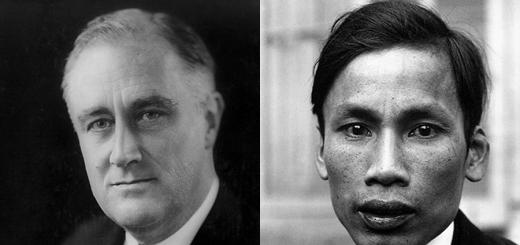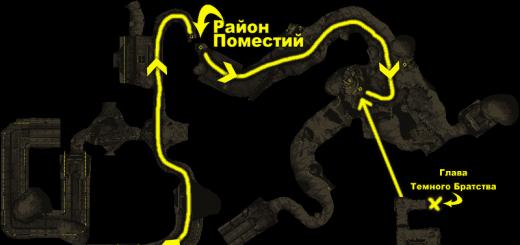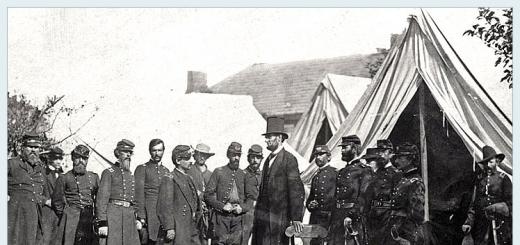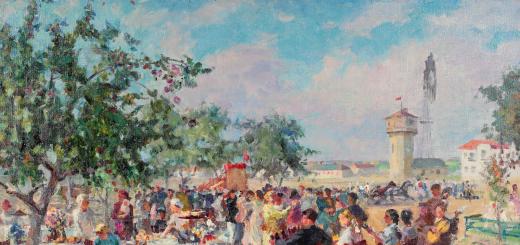The President of Uzbekistan Shavkat Mirziyoyev is going to Astana, who will be the guest of honor at the opening of the Year of Uzbekistan in Kazakhstan, the next 2019 will already be the Year of Kazakhstan in Uzbekistan. The frequency of meetings between Nazarbayev and Mirziyoyev is striking: perhaps no other leader in the region has such an intensity. From time to time, information appears in the media that both presidents are conducting telephone conversations.
On the eve of leaving for Astana, Mirziyoyev ordered that Uzbekistan "widely study the work of the great Kazakh poet and thinker Abai Kunanbayev." Tashkent said that a special structure - the Organizing Committee - will be engaged in promoting the heritage of the Kazakh poet. He should prepare and publish a collection of selected works of Kunanbayev, as well as a collection of articles "Uzbek-Kazakh literary ties." In addition, a permanent exhibition "Abai and Uzbek Literature" will be organized at the Nizami Tashkent University. Festive creative events will be held annually near the monument to Abai Kunanbayev in Tashkent. Schoolchildren and students will be invited to participate in the competition "Expert in Abai's compositions".
According to the press service of the Uzbek leader, a significant delegation from Tashkent is sent to Astana together with Mirziyoyev, consisting of cultural and art workers, artisans, journalists and representatives of other spheres.
All this demonstrates that relations between Astana and Tashkent are on the rise, which was never recorded during the time of the Uzbek leader Islam Karimov. The deceased, as you know, was jealous of Kazakhstan and perceived Nazarbayev as his main competitor in the region. Astana reciprocated.
Mirziyoyev initially began to position himself as a president, ready and open to dialogue, mainly with neighbors, and in this sense, the period of "jealousy and rivalry" seems to have ended. True, experts are convinced that both Astana and Tashkent unwittingly continue to remain hostages of regional competition, and the recent rapprochement should not mislead anyone.
Astana has quite pragmatic considerations regarding Uzbekistan, because it is a country of Kazakhs living in Central Asia outside of Kazakhstan. For example, in Tashkent, Kazakhs make up 2% of the total population of the city, thus occupying the fourth place in terms of specific weight after Uzbeks, Russians and Tatars. It is noteworthy that even during Karimov's time, Kazakhs often met in leadership positions in Uzbekistan and were even represented among high-ranking officials.
At the same time, the share of Uzbeks in Kazakhstan is also growing. As of January 1, 2016, the number of ethnic Uzbeks in Kazakhstan was 548,841. The rate of increase in the number of Uzbeks has accelerated again in the last decade (from 1.2% per year in the 1990s to 2.3% per year in the 2000s).
After 2000, due to the spread of labor migration, diasporas consisting of ethnic Uzbeks from Uzbekistan appeared in other cities and regions of Kazakhstan - in Astana, Almaty, Karaganda, Mangistau, Kyzylorda regions.
The traditional area of compact residence of Kazakh Uzbeks is South Kazakhstan oblast, where their share in the population in 2016 was 16.87%.
It is obvious that for such significant diasporas of Kazakhs in Uzbekistan and Uzbeks in Kazakhstan, the state of tension between the two countries, which has existed for decades, could not but complicate life. However, over the past year and a half, both sides have taken steps that significantly change the overall landscape. Among the most notable are the simplification of the border crossing procedure, the opening of direct bus services and new border points. In 2017, the assembly of Uzbek Ravon cars began in Kostanay, which is in significant demand in Kazakhstan. At the same time, there are many unresolved issues and, mainly, this is the problem of legalization of labor migrants from Uzbekistan in Kazakhstan, which serves as a powerful incentive for corruption.
Kazakh-Uzbek warming is changing the atmosphere in the region, said Tolganay Umbetalieva, director of the Central Asian Foundation for the Development of Democracy. She noted that now there is a lot of talk about cooperation. It is no coincidence that in addition to Mirziev, a landing from the leaders of other Central Asian republics gathered in Astana. It should be noted that for the first time the proposal to hold such a meeting was put forward by Mirziyoyev at the 72nd session of the UN General Assembly. At the international conference "Central Asia: One Past and Common Future, Cooperation for Sustainable Development and Mutual Prosperity" held in November 2017 in Samarkand, the initiative was supported, the Kazakh delegation then proposed to hold the first meeting in Astana.
Thus, the first timid, unobvious attempts to work out some kind of general development strategy are being formed in the region.
An expert at the Institute for Economic Research of Central Asian Countries, Alisher Khamidov, noted that a period of realization is coming in Central Asia that, in reality, all theories that this region is really needed by someone, that it is a magnet for the West turned out to be a bluff. According to him, it was quite obvious that after the death of Islam Karimov, who was the main deterrent in Central Asia, some progress would begin.
“Mirziyoyev had no choice but to start building close relations with Kazakhstan. Karimov left him such a difficult legacy, and it will take a very long time to sort it out. And here the new government had only one way - to open the borders and focus on a new format of relations with neighbors. And the neighbors were interested in this. Even with Karimov alive, Kazakhstan wanted to have closer contacts, because business was losing a lot of money due to delays, primarily at the border, but in fact, if all barriers were completely eliminated and the borders were opened, this could really significantly improve the economic situation of both countries. ... The current period, which I would call a "honeymoon", is indeed characterized by a super-intensive contacts between the leaders of the countries, and purely human relations have also revived. But we must not forget that after the month of marriage, a difficult family life begins. And here there are much more questions, whether the issues of competition and the struggle for investors will become aggravated again, whether new problems will begin on the border, whether old grievances will be remembered. Therefore, much will depend on how much the declarations will turn into a real practical field, ”Alisher Khamidov said.
Open source illustration
33093 30-11-2018, 10:47
Why do Tajiks and Uzbeks intensively learn the language of Pushkin, and how should Kazakhs relate to this?
ENG RUS KZ
The number of Russian classes in Uzbekistan's schools is growing, and the Minister of Public Education of the republic states "a serious increase in the real demand for schools with Russian as the language of instruction." In Tajikistan, the situation is even more indicative - there not only “Russian schools” are being built and Tajik textbooks are translated into Russian, but highly qualified native speakers are invited from Russia to work in secondary schools, lyceums and gymnasiums in the cities of Dushanbe, Khujand, Kulyab, Gissar and Dangara ... What is the reason for the revival of interest in the Russian language in these countries? What do they expect to get in the end? Will they win or lose from the appearance of a decent stratum of the population there, speaking a “foreign” language? Do we need to analyze this tendency in Kazakhstan, and what should be the attitude towards the study of the Russian language in our country? A word to the experts.
Tolganay Umbetalieva, General Director of the Central AsianDemocracy Development Fund, candidate of political sciences:
"This is a purely economic decision that may have political consequences in the future."
 - I don’t know how large-scale the processes you are talking about really are, because the media often greatly exaggerate the significance and scope of certain events and tendencies. But in any case, I can assume that the interest in learning the Russian language in Uzbekistan and Tajikistan is associated with a large flow of migrants from these countries to Russia. As you know, the Russian Federation as one of the requirements for their stay on its territory puts forward the knowledge of the Russian language.
- I don’t know how large-scale the processes you are talking about really are, because the media often greatly exaggerate the significance and scope of certain events and tendencies. But in any case, I can assume that the interest in learning the Russian language in Uzbekistan and Tajikistan is associated with a large flow of migrants from these countries to Russia. As you know, the Russian Federation as one of the requirements for their stay on its territory puts forward the knowledge of the Russian language.
In addition, migrants from Kyrgyzstan, Uzbekistan and Tajikistan, who do not know him, find themselves in difficult situations, and most importantly, not legal position. This means that it is in their own interests to master the language of the host country.
Learning Russian is probably the easiest and fastest way to solve the problem of unemployment in the countries of the Central Asian region. It is much more difficult to solve it by economic methods. In particular, I mean the creation of conditions for ensuring employment of the population, reducing the level of labor migration, especially from the countryside.
In other words, the growing interest of the population in the study of the Russian language, in my opinion, has purely economic motives. But in the future, it could have political implications.
Ayman Zhusupova, expert of IMEP at the Foundation of the first president of the Republic of Kazakhstan:"The positions of the Russian language will be preserved"
 - Both in Tajikistan and Uzbekistan, the Russian language is still widespread as a means of communication in everyday life, as the main source of information in the scientific, and above all, in the scientific and technical sphere. But the level of his knowledge and study is declining, and this is especially true for the hinterland.
- Both in Tajikistan and Uzbekistan, the Russian language is still widespread as a means of communication in everyday life, as the main source of information in the scientific, and above all, in the scientific and technical sphere. But the level of his knowledge and study is declining, and this is especially true for the hinterland.
Researchers note that, for example, in Uzbekistan, when switching to the Latin alphabet, the authorities were unable to ensure the translation of a huge layer of scientific literature into it (although they originally conceived it). As a result, a whole generation was left behind in terms of obtaining a quality education, which studied in schools already on the basis of the new alphabet.
Accordingly, today you can get a high-quality education there only in Russian. The initiators of the reform did not take into account that the transformation of such a basic parameter of culture and life in general requires personnel and time. Until now, many books in the Uzbek language are published on the basis of the Cyrillic alphabet, which is explained by the habit, the ease of perception of such a text by both scientists and the readership. The demand for the Russian language in Uzbekistan is evidenced, in particular, by the fact that the Russian Center for Science and Culture in Tashkent (RCSC) in the coming years will open 12 regional branches in order to raise the level of knowledge of the local population and youth.
As for Tajikistan, the country's authorities directly declare the existence of a real needs for the Russian language. In this regard, the wave of criticism that arose in social networks about the level of knowledge of the Russian language by the Tajik Minister of Education and Science is indicative.
On the whole, both in Uzbekistan and in Tajikistan, Russian is still the language of interethnic communication, the main means of communication between urban intelligentsia, officials and businessmen, but the extent of its spread has significantly narrowed.
Separately, it should be noted that it is important for citizens of Uzbekistan and Tajikistan to know Russian and due to the fact that Russia is the main migration recipient of these countries. Lack of knowledge of the Russian language entails negative consequences for labor migrants, including legal helplessness, a system of double exploitation.
Kazakhstan, analyzing and taking into account the experience of introducing the Latin alphabet in these countries, pragmatically approaches the situation. In our country, the transition to it is also perceived as a solution that will allow us to more successfully integrate into the world community. But at the same time there is an understanding that from the move from the Russian language will entail the loss of a huge layer of cultural and scientific heritage created in the Cyrillic alphabet. Therefore, the authorities are trying to make the transition smoothly, preserving the positions of the Russian language, Cyrillic and gradually increasing the importance of the state language, for which there is a great demand today.
The fundamental difference in our situation is that only the Kazakh language is translated into the Latin alphabet, while the positions of the Russian will remain, and it will continue to be used in the Cyrillic alphabet. We have an understanding that the translation of the Kazakh language into the new alphabet is a complex, multifaceted and long-term process that affects the social, political, cultural foundations of the life of many social groups of the population. At the same time, the transition to the new alphabet will make it possible to modernize the language, unite the Kazakh ethnos at the expense of an equal start in the study.
Nevertheless, it is necessary to analyze in great detail the errors that took place in neighboring countries in order not to get the same consequences.
Miras Nurmukhanbetov, one of the founders of the forum "Zhana Kazakstan":"You cannot interrupt the language of Pushkin and Saltykov-Shchedrin with the language of Putin and Kiselev"
 - It is difficult for me to judge exactly what purpose is pursued by “increasing the number of classes with Russian as the language of instruction ”. It could be anything. For example, the goal may be the adaptation of Uzbek and Tajik guest workers to Russia, because it is no secret that their remittances to their homeland not only help their families survive, but also significantly replenish the budgets of these countries. Uzbeks transfer about $ 4 billion, and Tajiks - about $ 2.5 billion annually. Knowledge of the Russian language will make it possible to increase these amounts, ensure the safety of guest workers in Russian cities and gradually rid them of the image of “dzhamshut” and “ravshan”.
- It is difficult for me to judge exactly what purpose is pursued by “increasing the number of classes with Russian as the language of instruction ”. It could be anything. For example, the goal may be the adaptation of Uzbek and Tajik guest workers to Russia, because it is no secret that their remittances to their homeland not only help their families survive, but also significantly replenish the budgets of these countries. Uzbeks transfer about $ 4 billion, and Tajiks - about $ 2.5 billion annually. Knowledge of the Russian language will make it possible to increase these amounts, ensure the safety of guest workers in Russian cities and gradually rid them of the image of “dzhamshut” and “ravshan”.
There may also be a political component. If Dushanbe and before it was in the zone of direct influence of Moscow, then Tashkent, due to some changes in its foreign policy vector (which your newspaper wrote about), may have decided to liberalize the "language issue". Here, by the way, it should be noted the growth of activity of the Russian-language media (local, as well as Russian, focused on Central Asia), which began to receive grants and promote the main provisions of the current political course of the Kremlin.
If we talk about Tajikistan separately, then this may be a natural process, since Russian is there language of interethnic communication, as evidenced by the 2nd article of the Constitution of this country. Perhaps the number of Russian schools and classes (as well as Tajik ones) is increasing simply due to population growth, and from Russia everything is seen the way it wants. In Uzbekistan, the number of not only schools, but also lyceums and colleges with Russian as the language of instruction is constantly growing. As, however, and the total number of educational institutions, which is associated with demographic trends.
As for "win or lose", this is their internal affair, even if through the "language issue" someone is trying to revive the empire, create its southern outpost, or something like that. In general, objectively speaking, no one has yet lost from the fact that they know many languages, but at the same time they do not forget their native language. By the way, representatives of "non-titular" nations in these republics know the language of "aborigines" very well, which cannot be said about our country.
And what about Kazakhstan? I think there is nothing to analyze here. Unless, of course, you do not artificially pedal the problem from one side or the other. Let the extreme right-wing nationalists do this or the most ardent champions of the "Russian world". Russian language is actually the most widespread in our country and in many respects is ahead of Kazakh, if not to say - dominates over it. Although this fact stubbornly refuses to recognize the guardians of the "great and mighty" on both sides of the border.
As for my attitude to the Russian language, I adhere to the following formula: you cannot interrupt the language of Pushkin and Saltykov-Shchedrin with the language of Putin and Kiselev. These are completely different languages, although they may sound the same.
Aigul Omarova, political scientist:"Interest determines the economy"
 - There is nothing surprising in the fact that Uzbekistan and Tajikistan are again turning to the Russian language, increasing the number of classes with training in it, inviting teachers from Russia. It is necessary to raise the economy, keep up with new trends, master innovative technologies and methods, which presupposes a different quality of knowledge. It is unlikely that the Western countries are interested in the above-named republics in this regard, since there are no special natural resources that they could “lay eyes on”. Therefore, the closest neighbors remain. By the way, before, in Soviet times, national languages were prevalent in these republics. Today's renaissance, I repeat, is associated with the need to develop the economy, and this should largely be facilitated by technology, machines, and other things that can be obtained from Russia. In other words, economics determines interest.
- There is nothing surprising in the fact that Uzbekistan and Tajikistan are again turning to the Russian language, increasing the number of classes with training in it, inviting teachers from Russia. It is necessary to raise the economy, keep up with new trends, master innovative technologies and methods, which presupposes a different quality of knowledge. It is unlikely that the Western countries are interested in the above-named republics in this regard, since there are no special natural resources that they could “lay eyes on”. Therefore, the closest neighbors remain. By the way, before, in Soviet times, national languages were prevalent in these republics. Today's renaissance, I repeat, is associated with the need to develop the economy, and this should largely be facilitated by technology, machines, and other things that can be obtained from Russia. In other words, economics determines interest.
Thanks to the knowledge of the Russian language, these republics will benefit not only economically, but also in the social sphere. After all, Russia is opening its universities there, and Tajikistan and Uzbekistan will begin to receive qualified specialists, and this is already a guarantee of higher living standards in these countries. Consequently, there will be fewer reasons for social conflicts. In addition, issues of national security are of no small importance, and here it is better to interact with the help of the Russian language.
Where can these countries lose? Fears that Tajiks or Uzbeks will forget their mother tongue are hardly justified. After all, they absorb it with their mother's milk, and families still speak their native languages more.
As for Kazakhstan, we have a different picture due to the fact that the Kazakh land has been the homeland for representatives of different peoples from time immemorial. In this regard, Tajikistan and Uzbekistan are more monolingual countries. On the contrary, we need to focus on learning the Kazakh language, but not at all the one that some so-called civic activists insist on.
For example, I have not met a single Russian or Tatar who would be against learning the Kazakh language and introducing it into office work. Another thing is that some native speakers are extremely aggressive in their demands to speak only Kazakh, forgetting about constitutional norms and human rights. Professor Masanov was right when he argued that it was impossible to introduce the Kazakh language by order. I would also add that aggression cannot change the situation. A different approach is required. By the way, bewilderment is caused by the fact that the head of the department that develops the new Kazakh alphabet and is responsible for the fate of the Kazakh language is a person suspected of financial violations several years ago. Agree that this is not credible.
In order for the Kazakh language to become truly in demand, it is time to stop any speculations on this topic and introduce punishment for them, up to
criminal. It is necessary to start organizing free courses, clubs for the study of the Kazakh language. There is money for this - only political will is needed. And, of course, more programs, publications in the Kazakh language are required, but without didactics and moralizing on the part of pundits. We need a living speech of authoritative people. Remember how the writer Gerold Belger described the polysemy of the Kazakh language, giving examples of how the Kazakhs named horses depending on age. Right now, this is exactly what is needed so that people feel the richness of vocabulary and feel an interest in learning the Kazakh language.
Fate threw me, a Kazakh woman, to Uzbekistan, and I suddenly discovered that I feel like a black sheep here. No, my work is going well, my child has found a lot of common interests with local children, I communicate with my neighbors sincerely. The stumbling block was ... men. I suddenly realized that the Uzbeks are not at all the same as the Kazakhs. And since I have never met a man of any other nationality, it became a revelation for me: that I feel a barrier to meet, meet and spend time with Uzbek men.
Let's look at what differences and similarities I found between Kazakhs and Uzbeks. Everything that I will say is based on deeply personal, individual feelings and can in no way be classified as an official statement. Just sharing.
1. There are very nice types among Uzbeks, but every time I arrive in Kazakhstan, I note that Kazakh men are much more attractive. I will take the liberty of saying that every second man in our country is attractive and handsome. I never considered Kazakhs beautiful, maybe my eyes were blurry here and all Kazakh men were like brothers to me. Now, torn from my native places, I began to miss my hometown, and when I manage to walk along my favorite streets and cafes, I note to myself: “Oh, how cute! And this one! And this one too! " It turns out that I had to go to another country to understand how beautiful Kazakhs are. I am grateful for this discovery, because now I look at Kazakh men with a more flirtatious look.
2. Uzbek men are very touchy. I tried to understand why they are so sensitive, but so far the mystery has not been solved. The feeling of resentment is generally more inherent in children, for them it is a tool for attracting attention or some real benefits. But for Uzbek men, this is some kind of familiar style of behavior. For example, from the first day of my arrival, I go and think: should I buy a car here or not. I tried to ask many men how much a used car costs, but since the country has its own manufacturer, everyone buys only new cars. Once we were sitting with colleagues at dinner, and I again asked this sacramental question: "How much can a used car cost in Uzbekistan?" never interested in it. A tense silence hung in the air, and I decided to save the situation: "Damn, the Uzbeks are cool, they only buy new cars!" From the look of the men at the table I realized that with this phrase I managed to offend everyone at once. The joke was not appreciated.
The Kazakhs in this regard seem to me to be calmer and more sober - it is easier to discuss the problem with them, which is called "no offense", they do not translate the issue into the plane of clarifying personal relations. By the way, Uzbeks are distinguished not only by touchiness. It is very difficult to get forgiveness from them. So consider this point: be more restrained and do not offend the Uzbek man, remember: there is no way back to earn his understanding and forgiveness.
3. Psychologists at Bar-Ilan University conducted a study, during which they found out that women with increased libido with long abstinence become very demanding and picky in choosing partners. It is not known for certain why scientists studied Uzbek women with increased libido, but the fact remains, and this, by the way, is noticeable to the naked eye: most of the Uzbek women are insanely temperamental women 24/7. Uzbek men have to live in a more intense mode of sexual activity. But this is a reason not only for reproaches towards Kazakh men. In sex, cause and effect often change places: maybe we, Kazakh women, have something to think about here.
4. I officially declare: contrary to the existing myth about the excessive cunning of the Uzbeks, Uzbek men are not cunning! As La Rochefoucauld correctly noted: "Truly clever people pretend all their lives that they abhor cunning, but in fact they simply neglect it for exceptional cases that promise exceptional benefits." Uzbeks and exclusive benefit are incompatible.
A banal deception is a completely different matter: this is when you are misled, when they say one thing and do another, or when they promise something, but they themselves do not even know what it is about. And here, unfortunately, I often have to deal with deception. The Uzbeks do not attach serious importance to deception, they consider it to be something innocent. But this indicates not differences with Kazakhs, but rather similarities: among Kazakhs this is also very common - in each of us there is a little of Aldar-Kose.
5. Kazakh men are more decisive: he said - he did. Sometimes they even go overboard with it: they did it and didn’t say anything. I realized that Uzbek men are indecisive, when my colleague literally every day tormented me for a whole week with the question of whether to go on vacation or not. He himself did not understand what to do with his vacation. Another example: in the first month I hired a driver for myself, after a week I noticed that he was somehow restless and slightly annoyed - it turned out that this was due to the fact that he was torn in the mornings and evenings between me and another person whom he drove ... It was necessary to be in time there, and then by 9 o'clock to bring the two of us to work at two different addresses. I kept waiting for the driver to say that he was not in time, but he was silent like a fish. I had to take everything into my own hands: I started to find out what was the reason for his lateness and nervousness, but only after a couple of days of active pressure, he admitted: “I think I’ll have to quit, because I probably don’t have time.” "Hooray!" - I exclaimed to myself. It was a small victory - an Uzbek man made a firm and final decision in front of my eyes. I was happy for both of us.

6. Uzbek men are very fond of talking... Considering that our women usually complain that their men don't talk to them at all, then the women are lucky. The Uzbeks are ready to discuss with you everything you want and whoever you want, in all the details and details - even those that you have not thought of yet. On arrival in Tashkent on the very first weekend, my colleagues invited me to the club. After a couple of cocktails, as usual, I started dancing - that was, in fact, why I came (why else would people go to the club ?!). Nearby was a guy who was also dancing very merrily, and after dancing with him, I returned to my own. A couple of minutes later, the "dancer" approached to meet and within an hour I knew everything about him: where he lived, how he lived and with whom, I learned about his divorce, how he suffered, what is expensive in Uzbekistan and what is not. He told me what Uzbeks really are, and finally warned me not to be too kind and polite here, otherwise others will perceive it as weakness.
7. Maybe Kazakh men are taciturn, but that they are quick-witted is 100%... Have you ever thought about what is quick-wittedness? In short, it is the ability to find exclusive, non-obvious, or workarounds for solving a problem. And achieve your goal without violating the established rules. The Uzbek gentlemen do not think about this, which is probably why sometimes their decisions are like an ax on the forehead. I ordered a service in my office - to glue the glass partitions with a matte film. The glass itself turned out to be 110 cm wide, and the matte film was only 100 cm wide, which I found out when I accepted the job. First, we met with the "gluers", discussed how we want, where and what inscriptions to make, and so on. We arrive in two days to accept the work and see: they came up with a crazy idea to glue the matte film transversely, and it turned out that the width was enough for them, but at the same time they categorically neglected the height. Pasted over everything transversely with terrible joints in three rows. I couldn't even swear, I just laughed to tears. Having calmed down, we asked to redo the work, the guys did it, but even then they made an equally incredible decision. A 100 cm wide film was glued to one side and a strip was glued to the remaining 10 cm from the other side. When I threw them an idea to place 100 cm in the center, leaving five-centimeter stripes at the edges, and asked: "Wouldn't it look more beautiful and harmonious?" - the workers have a cognitive dissonance.
8. Kazakhs are lazy - Uzbeks are hardworking. There was a joke in FB that if you are Kazakh and get up early, sweep the yard, then go to work, then return, cook pilaf and clean the cauldron - do not do this, otherwise you will turn into an Uzbek! I used to think that Uzbeks are very hardworking, and Kazakhs are one lazier than the other. Now I can say the opposite: knowing the Kazakhs, it's hard to believe it, right? But when you get to know the Uzbeks better, you will understand that they are hardworking only where it is necessary to slaughter a ram and cook pilaf. According to tradition, Uzbeks have to get up early, because at a wedding, funeral or circumcision, they have to serve pilaf for neighbors and other guests by six in the morning. To cook it, you have to wake up very early. The fact that an Uzbek sweeps the yard, washes the cauldron and happily goes to work, where he works in the sweat of his brow, is a myth. Probably the most correct formulation is this: we are equally lazy. This is the East, baby, this is the East.

9. What do the Uzbeks havedo not take away- they are very friendly. They greet you like an old and beloved friend, even if you are not familiar, but simply collided, for example, in the doorway or ended up in the same elevator. The same people will greet you every time, like on the first, five times a day. And it is important that when Uzbeks ask you "How are you?" - there is no formality in this. They are actually interested in how you are doing, and want to hear in response about your family, health, mood, work ... In general, you cannot get away with a simple "normal". It would be nice for us, in Kazakhstan, to become just as friendly.
It is clear that any gradations are never accurate, and therefore they are very doubtful. The British are prim, the Italians are cheerful, the Americans are insolent - each of these statements has a mistake. Because someday you will definitely meet a sad Italian or a familiar-minded Englishman. You can just as easily intersect with the most honest Uzbek or talkative Kazakh. But, despite this, the general tendencies that are characteristic of a particular nationality are still being caught.
But the most important thing is not how we differ, but what we have in common. We have common borders, Syrdarya, Nauryz and Ait, manti and pilaf, respect for the elderly, tangled steppe roads and slender mosques. We are a motley, noisy, hospitable Asia, where one piece on the general geographic map is us, and the other is nearby - Uzbekistan. And the only way for us is to be friends and accept each other with all our oddities and character traits.
Hi, in short, I live in Kazakhstan and do SEO. And somehow I decided to write an article "Why Kazakhs?" How I searched for these 77 questions, and why I will write at the end of the post, so I recommend reading to the end.
Why Kazakhs?
If he says why I am writing specifically about Kazakhs, then because I myself am Kazakh. And I decided to answer 77 of the most interesting questions for people related to Kazakhs. Here will be my personal opinion, which may be different from yours. If so, write about it in the comments. And so here we go, the second question.
Why do Kazakhs circumcise?
Firstly, most of the Kazakhs are Muslims, and secondly, from the point of view of hygiene and health, it is useful to do circumcision. And yes, this is perhaps part of our tradition, and there are many customs associated with this custom.
Kazakhs fled to China?
Yes, there was such a thing, if I am not mistaken in 1929-33, when there was a great famine on our land, as a result of the policy of the USSR. At that time, many Kazakhs died, several million. And in order to survive, part of our people fled to neighboring countries.
Do Kazakhs speak Russian?
Yes, almost all Kazakhs speak Russian, and this can also be said due to the policy of the USSR. But Kazakhs speak other languages as well: Turkish, German, English, Ukrainian, Chinese, and many other languages.
Do Kazakhs speak Russian without an accent?
Yes, Kazakhs speak Russian without an accent, sometimes better than the Russians themselves, and sometimes worse. Depending on the region of residence.
Are Kazakhs divided into zhuzes?
Yes, our people are divided into zhuzes, I think this is connected with Genghis Khan, and how he controlled his army. So the zhuzes remained - hundreds. It also depends on the region of residence. We have three zhuzes and two groups:
- Kishi (junior) zhuz
- Orta (middle) zhuz
- Uly (supreme) zhuz
- Ak Suyek, white bone, blue blood
- And ru not included in zhuzes

Approximate territories of nomadic zhuzes at the beginning of the 20th century. Senior Zhuz (marked in pink), Middle Zhuz (orange), Younger Zhuz (green).
Kazakhs are divided into ru?
Each zhuz consists of ru, there are more than 200 thousand of them, according to Wikipedia. Each ru has its own distinctive sign and motto. My ru, for example, is called Kypshak.
Do Kazakhs love Russian girls?
This is one of the questions to which I cannot give a more precise answer. Yes, they probably love, like Kazakh girls, and others. I would not single out Russian girls.
Are Kazakhs strong in boxing?
Oddly enough, boxing is one of the sports in which Kazakhs are strong. We have a good school, along with the Cuban school, and other schools. Our athletes often win various prizes at international competitions, especially at the Olympics. You may know such famous boxers as: Gennady Golovkin, Serik Sapiev, Beibut Shumenov, Kanat Islam, and many others.
Do Kazakhs buy cars in Russia?
This is a part of the history of modern Kazakhstan associated with devaluation. Sometimes it happens that the dollar falls in our country, but not in the Russian Federation, and there prices remain at the same level, and then our people in large groups leave for Russia to buy cars from local sellers, for themselves, or for resale in the local market at a premium. I can be wrong with this question, write your opinion in the comments.
Why are Kazakhs Asians?
Well, because they live in Asia, but we are not very much like Chinese, Koreans, or Japanese. Rather, we are not Asians, but Turks.
Why are Kazakhs poor?
As much as I do not like politics, but I will say that most of the Kazakhs are poor because of politics, and the inept distribution of resources and wealth of the country.
Why did Kazakhs flee to China?
Why are Kazakhs circumcised?
Why are Kazakhs divided into zhuzes?
Why are Kazakhs divided into ru?
Why do Kazakhs eat with their hands?
In fact, everyone eats with their hands, but here it is probably connected with the main dish beshbarmak (besbarmak, ettin nany, besh), meat with dough that is eaten by hand.
Why do Kazakhs marry Russians?
I don’t know the exact statistics, maybe we just liked each other.
Why are Kazakhs envious?
Envy is a vice that all people suffer from, it would not be singled out from the Kazakhs.
Why did the Kazakhs engage in nomadic cattle breeding?
Because we were a nomadic people, and a warlike people, we moved mainly on horses. And in terms of saving labor, it is much easier to move from one place to another, while in one place the feed eaten by livestock grows. In comparison with how much time, effort, and resources it takes to grow the necessary culture, plants to feed the entire nation.
Why do Kazakhs greet with two hands?
Also a tradition, a sign of respect for the interlocutor.
Why do Kazakhs know Russian?
Why did the Kazakhs roam?
Why do Kazakhs like tea?
Kazakhs love to eat, sit with friends, relatives, acquaintances and just chat, then tea comes well. Tea has become our culture, it is even bottled in different ways.
Why are Kazakhs small in stature?
The average height of Kazakhs is high, rarely met small Kazakhs. Well, if you compare with whom.
Why Kazakhs are mambets?
Initially, the word mambet denoted a male name common among the Turks. But later they often began to use it as a humiliation, denoting people from rural areas, an analogue of cattle.
Why don't Kazakhs speak Kazakh?
I consider it a result of the USSR's policy, and a bad development at the present time. And yes, a small amount of content in the Kazakh language, at the present time. It's just that many more studied in Russian, and it took root a lot. But in recent years I have noticed a slight positive trend in the popularization of the Kazakh language.
Why don't Kazakhs eat fish?
No, we eat fish, we just eat more horse meat. But in the west of Kazakhstan, they eat a lot of fish.
Why don't Kazakhs marry Russians?
Well, what can I say, a tradition, perhaps, but as I wrote above, Kazakhs marry Russians too.
Why do Kazakhs dislike Kalmyks?
Just so that there is hatred, it is not, perhaps it used to be associated with our common history.
Why do Kazakhs dislike Kyrgyz?
Also I will not say that there is no love, on the basis of a common history, something happened.
Why do Kazakhs dislike cats?
Why do Kazakhs dislike Naimans?
Because they are cunning and active, and most Kazakhs from other ru are not like that. But yes, there is no hatred here either.
Why do Kazakhs dislike Tatars?
Why do Kazakhs dislike Uzbeks?
Also on the basis of a common history.
Why do Kazakhs dislike Uighurs?
I don’t know either.
Why are Kazakhs ugly?
I have not seen such, all of us are beautiful in their own way.
Why do Kazakhs sniff children?
I don't even know, maybe they just smell delicious. And that other nations don't sniff their children?
Why are Kazakhs late?
This is a tradition.
Why do Kazakhs give their first child to their parents?
Now there seems to be no such thing, before such a practice was, as I know, because the first children were born in the aul, and they were left to their parents, and they themselves left for the city in search of a better life, and in the hope that they would later take the children back when they settled there.
Why are Kazakhs switching to the Latin alphabet?
As for me, this is another opportunity to waste the state. budget. There are many advantages to switching to Latin, though. And earlier in history, during the Kazakh SSR, we had a Latin alphabet. Perhaps to facilitate the understanding of our language by English-speaking foreigners. Possibly to reduce dependence on RF.
Why do Kazakhs spit?
I don't even know, maybe some people lack culture?
Why did the Kazakhs divide into zhuzes?
Why are Kazakhs strong?
Good genes.
Why do Kazakhs buy cars in Russia?
Why are Kazakhs swarthy?
I don't know the exact answer yet, but I'll try to answer later.
Why are Kazakhs so rich?
Why are Kazakhs so beautiful?
Why are Kazakhs so cool?
Why are Kazakhs so different?
The answer is above.
Why are Kazakhs leaving Kazakhstan?
Why are Kazakhs smart?
Here you can answer in different ways. But perhaps because for many Kazakhs life is not so easy, and you have to think with your head since childhood. That is why they are so smart.
Why are Kazakhs braggart?
Why do Kazakhs speak Russian well?
Well, if he speaks it for a hundred years or more, then the result will be.
Why did I write this post?
Initially, this is an experiment to drive traffic to my blog, and an experiment to get a 0-position in Google. If you read my blog, you know that I am engaged in SEO, and for this experiment I decided to try to collect traffic for the key query "Why Kazakhs?" and used.
With the help of it, I collected 77 additional requests related to the request. While I will look at how quickly the post will be indexed, and whether it will bring traffic.
In the meantime, if you have read this far, and you are interested in SEO, or want to promote your site in search engines, and get more organic traffic, you can write about it in the comments, or in my personal telegram, or in my chat.










